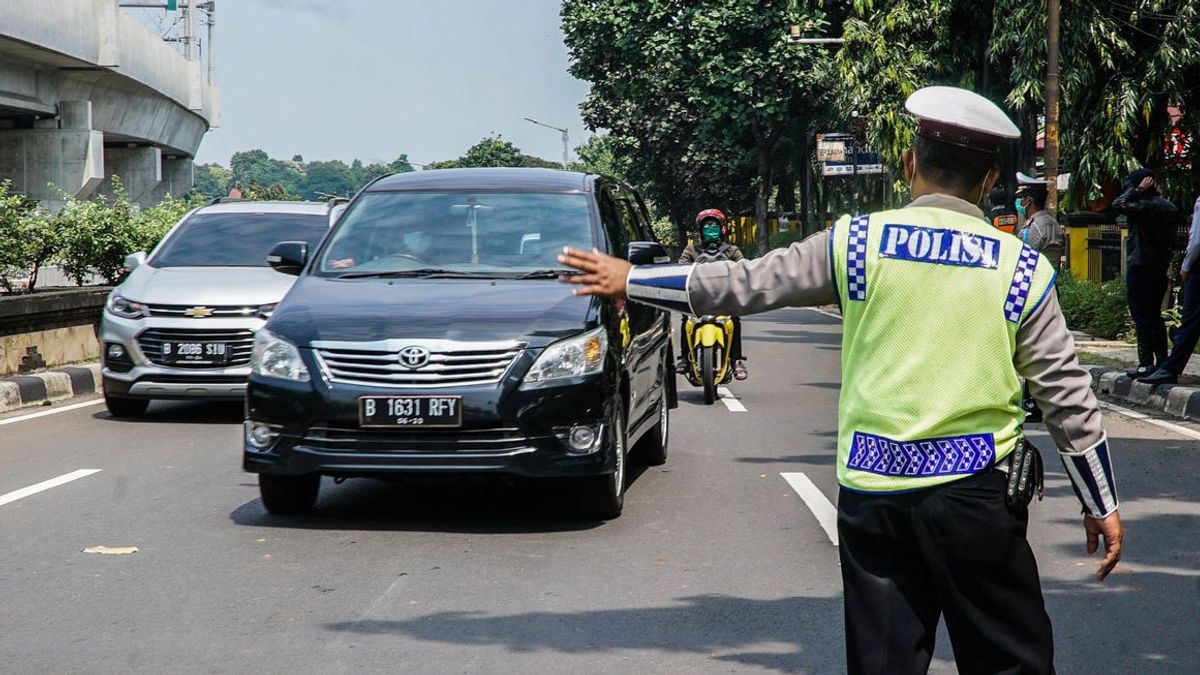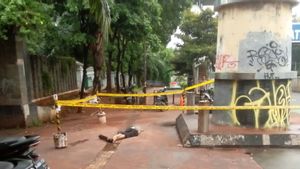JAKARTA - Economic observer from the Center of Reform on Economics Indonesia (CORE) Akhmad Akbar Susamto said the government's policy to impose restrictions on community activities (PPKM) had its own consequences in terms of budget use.
Moreover, when state officials decided to extend the period of implementing PPKM until next August 2.
"For me the PPKM policy is a 'bitter pill' that we really have to do to get out of the current COVID-19 pandemic crisis," he said in a virtual discussion, Tuesday, July 27.
For this reason, he asked all parties to obey the decisions made by the government in order to encourage a better level of effectiveness of PPKM.
"So what is important now is how to ensure that the social restriction policy can be successful, because economically PPKM is clearly detrimental and also wastes the state budget," he said.
Furthermore, the economist who is also listed as a lecturer at UGM provides a simple example regarding restrictions on mobility for road users.
"When people are not allowed to cross and then they look for other ways and then cause a buildup that has the potential to become a cluster, this clearly does not reach the essence expected from the restriction itself," he explained.
Another thing he put forward as an analogy is the rule of eating in a restaurant or other place to eat with the estimated time not exceeding 20 minutes.
“In this context, even if they have to eat at a place they are expected not to interact and transmit to each other. Now, unfortunately, this kind of substance does not happen in the field," he said.
For information, last Sunday, July 25, the government decided to extend the PPKM period until August 2, 2021. This step was taken because cases of COVID-19 transmission were still in a fairly high trend, namely 30,000 to 50,000 cases per day.
In response, the government also increased the budget for dealing with the pandemic which is included in the National Economic Recovery (PEN) scheme from the previous Rp699.43 trillion to Rp755.75 trillion.
The funds were distributed into five priority sub-sectors, namely health of Rp. 214.95 trillion, social protection (perlinsos) of Rp. 187.84 trillion, MSME and corporate support of Rp. 161.20 trillion. Then, the priority program is Rp. 117.904 trillion and the last is the incentive for the business world of Rp. 62.83 trillion.
Meanwhile, the Minister of Finance (Minister of Finance) Sri Mulyani openly stated that the enforcement of PPKM regulations in various regions by the TNI and Polri had cost the state budget of Rp. 790 billion.
The English, Chinese, Japanese, Arabic, and French versions are automatically generated by the AI. So there may still be inaccuracies in translating, please always see Indonesian as our main language. (system supported by DigitalSiber.id)













